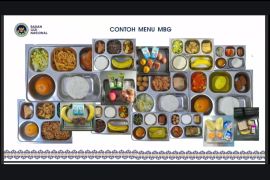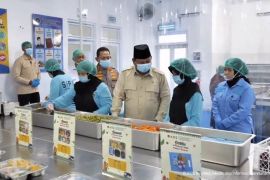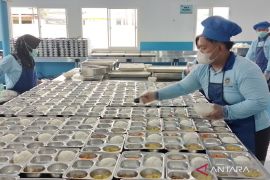During a meeting with the BGN at the Parliamentary Complex, Jakarta, on Tuesday, she underlined that the sources of food poisoning must be traced by focusing on several aspects, ranging from the local materials to the distribution process.
She cited a report from the Center for Indonesia's Strategic Development Initiatives (CISDI) on the standardization of the free meals provision, which states that only 17 percent of the meals meet nutritional and food safety standards.
"The CISDI also found that 45 percent of the menus served were ultra-processed food, while we actually want to empower local farmers and introduce local food," she said.
The CISDI has also provided several notes on the feasibility of the nutritional fulfillment service units if they need to serve three thousand to 3,500 people.
"In Brazil, ultra-processed food cannot be provided to schoolchildren. This good practice needs to be noted by the BGN to increase public trust in the free meals program," she said.
She also asked the agency to optimize the coordination and involvement of related ministries and agencies to ensure a rapid response to food poisoning cases and prevent further spread.
Related news: Indonesia's BGN responds to poisoning cases with stricter protocols
In addition, Commission IX advised the BGN to continue to coordinate with the Food and Drug Supervisory Agency (BPOM) to ensure that each partner involved in the MBG program follows strict food safety standards.
Meanwhile, BGN Head Dadan Hindayana highlighted that his agency is tightening food distribution procedures to prevent repeated cases of food poisoning.
He said that the first thing to be strengthened is the safety protocol during the delivery from kitchens to schools.
The second is limiting the maximum delivery time to maintain food quality, while the third is tightening the distribution mechanism in schools, including storage and delivery to students.
The fourth is setting a time tolerance limit so that the food is consumed immediately. Meanwhile, the fifth is setting the obligation for organoleptic testing of food before it is distributed.
Related news: School lunch processing standards tightened to prevent food poisoning
Translator: Lintang Budiyanti, Raka Adji
Editor: Rahmad Nasution
Copyright © ANTARA 2025












